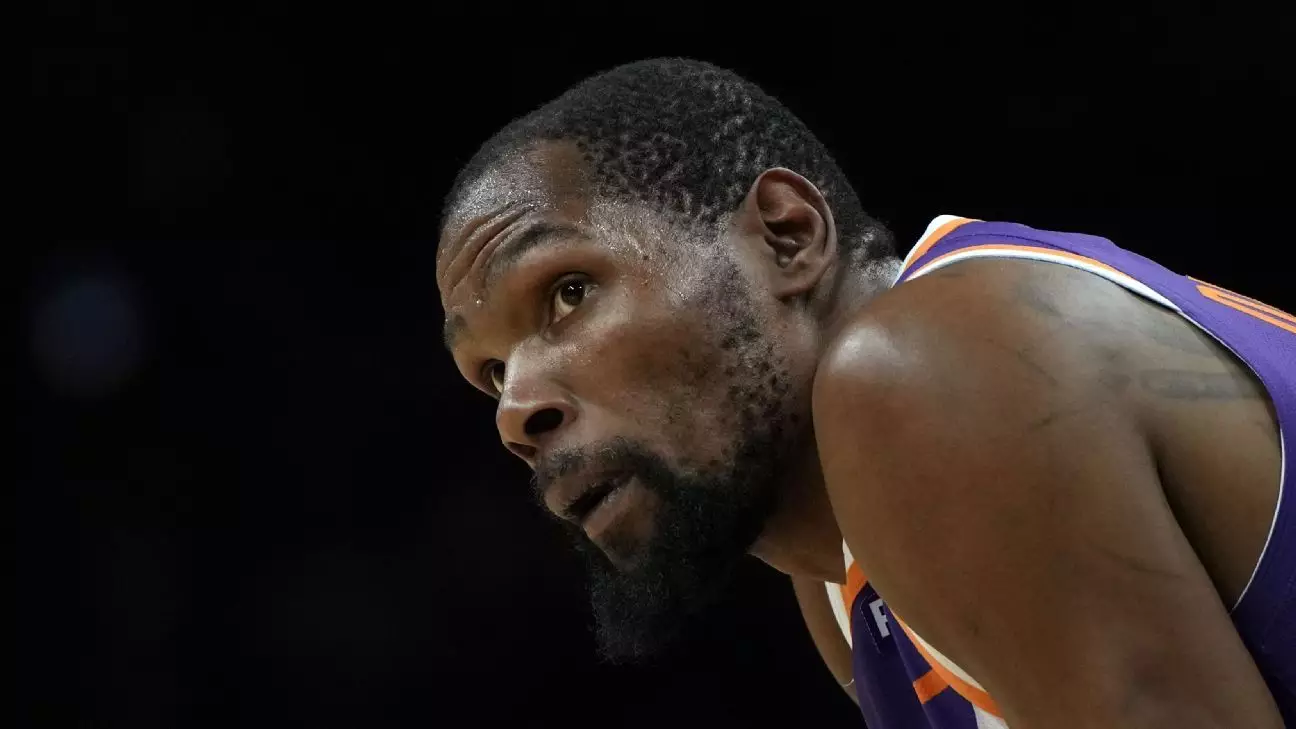The recent explosion of multi-team transactions in the NBA exemplifies a troubling trend: the sport’s increasing reliance on complex, high-stakes deals that often seem more driven by financial maneuvering and storyline dominance than genuine team-building. The record-breaking seven-team trade involving Kevin Durant, a player of significant talent but also of controversial stardom, underscores a shift towards a transactional culture that devalues stability and community. While league officials tout these mega-deals as thrilling spectacles, they often mask the underlying fragility of team cohesion and the erosion of organic team chemistry. It’s a spectacle that, under the guise of strategic brilliance, ultimately endangers the sport’s integrity and fans’ trust.
Commerce Over Connection: The Dark Side of NBA’s Trade Frenzy
This multi-layered trade, involving at least a dozen second-round picks, multiple franchises across the country, and a roster of high-profile players, demonstrates the NBA’s increasingly transactional nature. The league seems to prioritize narrative shifts—big-name trades to generate buzz—over nurturing lasting relationships between players, coaches, and fans. Durant’s move from Phoenix to Houston, facilitated by an intricate web of exchanges, exemplifies a marketplace mentality that commodifies athlete mobility. Instead of a genuine series of growth opportunities, players appear to be pawns in a grand chess game designed more for spectacle than for team development or community building.
Furthermore, the league’s emphasis on draft picks and cash considerations raises questions about the value placed on human capital versus financial strategies. The constant cycling of players suggests an industry more interested in short-term wins and headlines rather than cultivating cohesive, sustainable teams. This erosion of stability diminishes the authenticity of team sports, reducing them to high-stakes poker games where franchise loyalty and player development are secondary concerns.
Implications for Player Autonomy and Franchise Identity
Kevin Durant’s reflection on his time with the Suns highlights a deeper issue: the transient nature of modern NBA careers. Players, despite their immense talent and contributions, are increasingly seen as interchangeable assets. The pressure to move in pursuit of immediate success creates a precarious environment where personal growth and community ties are sacrificed for wins and ratings. This constant upheaval may boost league ratings temporarily but ultimately dilutes the sport’s core values—loyalty, rootedness, and shared identity.
Moreover, these elaborate transactions threaten to diminish the authenticity of franchise identities. Teams that once thrived on loyal, homegrown players risk losing their soul when assets are traded in the blink of an eye. The result is a diluted competitive spirit—one in which winning becomes less about collective effort and more about strategic swaps. Such an environment alienates fans who yearn to see their teams grow and evolve organically, not just be reshuffled like chess pieces in a high-stakes game.
The Future of the NBA: Innovation or Degradation?
While proponents argue that these trades make the league more exciting and marketable, critics see them as symptomatic of a deeper crisis. The NBA’s obsession with innovation—massive trades, draft pick manipulation, and state-of-the-art deal-making—risks sacrificing the sport’s intrinsic qualities for spectacle-driven pursuits. The sport’s integrity, which should rest on storytelling rooted in community, loyalty, and human achievement, is being undermined by a relentless focus on creating headlines.
As fans, stakeholders, and even players grapple with this new paradigm, it’s essential to ask whether such Mega-Deals will ultimately serve the sport’s long-term health or tug it further away from its foundational principles. Will the league’s focus remain on fostering genuine competition and community or become just a series of fleeting narratives designed for short-term profit? From a center-wing liberal perspective, it’s clear that prioritizing economic gains over authentic human connections risks diminishing the cultural significance of basketball—a sport that once symbolized perseverance, character, and community.

Leave a Reply